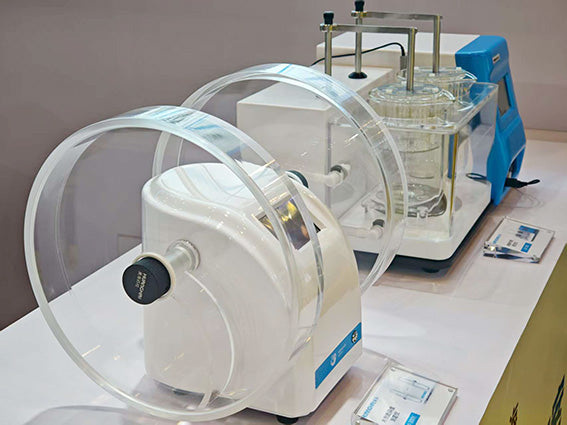
Tablet Hardness and Friability Testing: Safeguarding Drug Stability from Lab to Market
Share
In the manufacturing and distribution of tablets, ODFs, and functional supplements, mechanical stability is a critical quality parameter. Excessive hardness can hinder disintegration, while high friability can cause breakage during packaging or transport—compromising both appearance and dosage accuracy.
Why Are Hardness and Friability Tests So Important?
- Regulatory Compliance: Pharmacopeias such as USP, EP, and ChP all mandate standardized hardness and friability testing protocols.
- Logistics & Storage Integrity: Inadequate mechanical strength leads to breakage during handling, increasing wastage rates.
- Dose Uniformity: Poor friability may result in tablet powdering, affecting the consistency of active ingredients.
Common Challenges Faced by Manufacturers
- Testing only hardness, neglecting friability across batch samples.
- Inaccurate readings due to low-precision instruments or unstable rotation speeds.
- Infrequent quality control checks post-R&D, exposing production batches to potential risks.
Trends Driving the Industry Forward
- Integrated instruments combining hardness, friability, weight, and thickness measurements.
- Automated sampling modules to ensure repeatability and reduce human error.
- Enhanced sensitivity to accommodate mini-tablets and emerging dosage formats.
HUANGHAI's Solutions
HUANGHAI offers a range of tablet hardness and friability testers built for both R&D labs and commercial-scale production:
- High-precision load sensors and rotational control systems for compliant data.
- Robust machine housing and user-friendly design for GMP audit readiness.
- Easy maintenance and cleaning for fast changeovers between product types.
👉 Recommended product line: Tablet Hardness & Friability Instruments
Conclusion
Hardness and friability testing may be invisible to consumers, but it plays a visible role in product integrity. Choosing certified, reliable test equipment helps manufacturers meet regulatory demands, reduce batch failure risk, and build trust through consistent quality.
